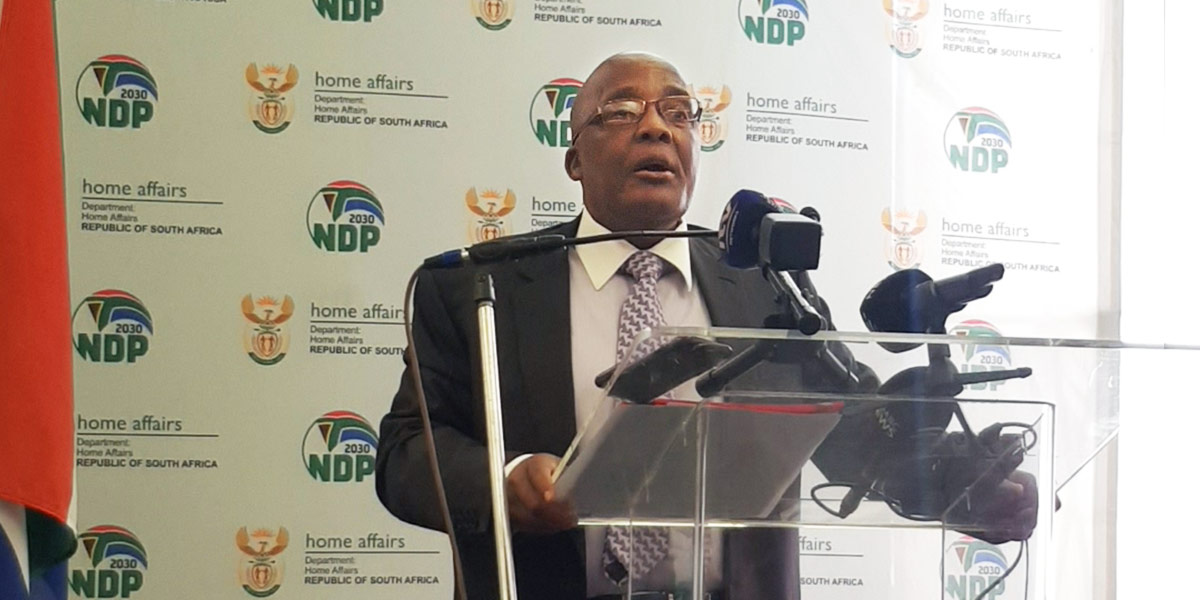Trans rights activists and Home Affairs minister agree to work together

Home Affairs Minister Aaron Motsoaledi
Minister of Home Affairs Dr Aaron Motsoaledi and transgender activists have met in a bid to resolve ongoing problems in delivering acceptable and affirming Home Affairs services to trans South Africans.
Last month, a group of trans, LGBTI+ and allied organisations wrote to the Department of Home Affairs (DHA) over its reduction of vital gender-affirming services during the lockdown period.
The letter was issued along with the results of a survey on the impact of Covid-19 on Home Affairs services for trans individuals. It found “a clear disregard by the DHA for the rights of transgender and gender-diverse persons during the pandemic.”
Seventy-three percent of those surveyed said that the DHA has not taken “the needs of trans and other LGBTI+ persons seriously” during the lockdown.
Minister Motsoaledi wrote back that under updated directions gazetted on 25 August, the DHA would resume many of its services. The coalition of organisations, in turn, replied that the directions “fall short of the urgent needs of our communities” and asked Motsoaledi “to provide further clarity and consider expanding services further.”
They also pointed out longstanding challenges faced by trans individuals when accessing gender-affirming services at the DHA and called for “a public statement instructing DHA staff to take the needs of our communities seriously, under all levels of lockdown…”
Finally, the coalition took up the minister’s commitment in his letter “to further constructive engagement in the near future” resulting in the landmark meeting with Motsoaledi on 21 September.
The Trans Activist Coalition that attended the meeting included representatives of Iranti, Gender DynamiX, Be True 2 Me, Triangle Project, Same Love Toti, Access Chapter 2, Transgender and Intersex Africa, Matimba, Women’s Legal Centre, the Legal Resources Centre and Transhope.
The issues discussed included systematic delays in dealing with amendments of particulars of trans persons; effective communication between the two parties; official identity management and marriage policies; international trends in dealing with trans persons; and amendments to the Alteration of Sex Description and Sex Status Act 49 of 2003.
In a joint statement issued by the coalition and the minister, they described the meeting as “fruitful” and “part of the minister’s commitment to engage constructively with all stakeholders in order to improve service delivery and development of policies.”
The coalition and the department pledged to work “together to address the systematic delays and training of Department of Home Affairs staff in order to meet the ever-changing environment of trans persons.”
The Trans Activist Coalition also committed itself to make contributions to Official Identity Management, Marriage Policies and Standard Operating Procedures once they are published for public comments.
The parties further agreed to “draw valuable lessons from new international trends in matters relating to trans persons” and to future engagements, “as dictated to by the circumstances, to deal with matters of mutual interest.”
Past engagements between Home Affairs and LGBTI+ activists under previous ministers have generally failed to deliver substantive results. Whether this engagement will be different remains to be seen.
Leave a Reply